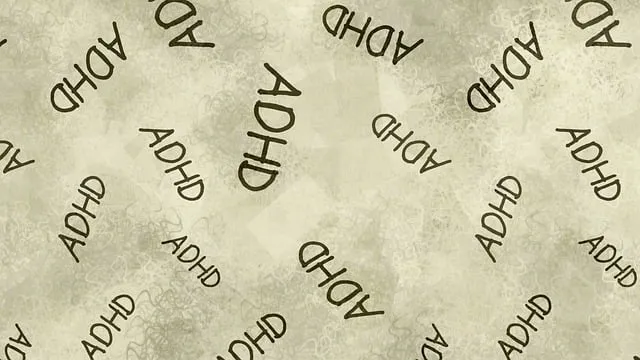In Lone Tree, understanding diverse community needs is key for effective mental health public awareness campaigns, focusing on anxiety, depression, and trauma. Kaiser Permanente's local mental health appointment center offers tailored programs like Trauma Support Services and Mindfulness Meditation, fostering resilience and mental well-being. Impactful campaigns require emotional intelligence, data-driven analysis, and community engagement, overcoming stigma and normalizing help-seeking behaviors. The Lone Tree Kaiser Permanente center can collaborate with influencers to humanize mental illness experiences, driving appointments and improved outcomes through continuous evaluation.
In Lone Tree, public awareness campaigns play a vital role in addressing critical health issues. This article explores how organizations like Kaiser Permanente are transforming mental health support through dedicated initiatives. We delve into understanding community needs, specifically targeting mental health challenges. By establishing a Kaiser Permanente mental health appointment center in Lone Tree, accessible resources are being promoted to combat stigma and encourage appointments. Effective campaign design and strategies to overcome barriers are highlighted, along with measuring success through evaluation.
- Understanding Community Needs: Targeting Mental Health Issues in Lone Tree
- Kaiser Permanente's Role: Establishing a Dedicated Appointment Center
- Designing Effective Public Awareness Campaigns for Mental Health
- Strategies to Overcome Stigma and Encourage Appointments
- Measuring Success: Evaluating the Impact of Awareness Initiatives
Understanding Community Needs: Targeting Mental Health Issues in Lone Tree

In Lone Tree, understanding the unique community needs is essential for crafting effective public awareness campaigns. The town’s diverse population presents a range of challenges, particularly when addressing mental health issues. According to local data from Kaiser Permanente mental health appointment centers in Lone Tree, anxiety disorders and depression are prevalent among residents, with an increasing number of cases linked to trauma. This highlights the critical need for targeted interventions that cater to these specific concerns.
Community engagement is key to success. By collaborating with local organizations, schools, and churches, awareness campaigns can reach a broader audience. Incorporating initiatives like Trauma Support Services, Mindfulness Meditation, and Self-Awareness Exercises into community programs has shown promise in promoting mental well-being. These strategies not only help individuals cope with trauma but also foster resilience and overall mental health awareness within the town.
Kaiser Permanente's Role: Establishing a Dedicated Appointment Center

Kaiser Permanente has played a pivotal role in enhancing public awareness and accessibility to mental health services, particularly through its dedicated appointment center in Lone Tree. This initiative underscores the organization’s commitment to addressing the growing need for mental well-being support within the community. By establishing this specialized hub, Kaiser Permanente offers a safe and supportive environment where individuals can seek assistance for various mental health concerns, including Trauma Support Services and Stress Management Workshops.
The appointment center is not just a physical space but serves as a one-stop solution, providing easy access to professionals who offer tailored programs like Mindfulness Meditation. This strategic move by the organization ensures that residents in and around Lone Tree have a reliable resource for their mental health needs, fostering a healthier and more resilient community.
Designing Effective Public Awareness Campaigns for Mental Health

Designing effective public awareness campaigns for mental health is a nuanced task that requires understanding the nuances of human emotion and behavior. Organizations like Kaiser Permanente’s mental health appointment center in Lone Tree have pioneered innovative strategies to destigmatize mental health conversations. These campaigns leverage accessible platforms to disseminate valuable information, emphasizing the importance of early intervention and ongoing support. By integrating Mind Over Matter Principles and highlighting successful Emotional Healing Processes, these initiatives aim to encourage individuals to seek help without fear of judgment.
A critical component of such campaigns is a comprehensive Risk Assessment for Mental Health Professionals. This tool enables experts to identify vulnerable populations and tailor interventions accordingly, ensuring that messages resonate with diverse audiences. Through data-driven analysis and community engagement, public awareness campaigns can effectively reach those in need, fostering an environment where mental well-being is prioritized and supported.
Strategies to Overcome Stigma and Encourage Appointments

Overcoming stigma is a critical component of increasing participation in mental health services. Public awareness campaigns can play a pivotal role in normalizing conversations around mental illness and encouraging individuals to seek support. Strategies should focus on educating communities about the importance of mental wellness, dispelling myths, and promoting emotional intelligence. By presenting mental health as a crucial aspect of overall well-being, rather than a sign of weakness, campaigns can reduce barriers to access.
For example, the Kaiser Permanente mental health appointment center in Lone Tree could collaborate with local influencers, community leaders, and media outlets to produce engaging content such as an emotional intelligence workshop series or a Mental Wellness Podcast. These initiatives can help to humanize experiences with mental illness, highlighting success stories and emphasizing the availability of professional support. Encouraging open dialogue and providing resources tailored to diverse populations will ultimately facilitate appointments and improve outcomes for those seeking care.
Measuring Success: Evaluating the Impact of Awareness Initiatives

Evaluating the impact of public awareness campaigns is a crucial step in understanding their success and identifying areas for improvement. Measuring the effectiveness of initiatives like those at the Kaiser Permanente Mental Health Appointment Center in Lone Tree involves assessing both short-term and long-term outcomes. This includes tracking increases in service utilization, such as a rise in mental health appointments, which can indicate growing awareness and acceptance of mental health issues within the community.
Additionally, qualitative assessments, such as feedback from participants or clients, can provide valuable insights into how these campaigns have impacted individuals. For instance, at Trauma Support Services or Stress Reduction Methods workshops organized by stress management workshop organizations, collecting testimonials or survey responses can reveal changes in attitudes, behaviors, and perceptions related to mental health. This holistic evaluation ensures that awareness initiatives are not just reaching audiences but are also fostering positive change and empowering people to seek help when needed, as demonstrated by the successful programs at Kaiser Permanente.
Public awareness campaigns play a pivotal role in addressing critical community needs, particularly when it comes to mental health. As seen with Kaiser Permanente’s initiative in Lone Tree, establishing dedicated appointment centers and crafting targeted campaigns can significantly reduce stigma and encourage individuals to seek help. By measuring the success of these initiatives through evaluation, we can continually improve strategies to ensure better mental well-being for all, especially in areas like Lone Tree where access to care is vital. Kaiser Permanente’s commitment to mental health services highlights effective ways to navigate community challenges, ultimately fostering a healthier and more supportive environment.






